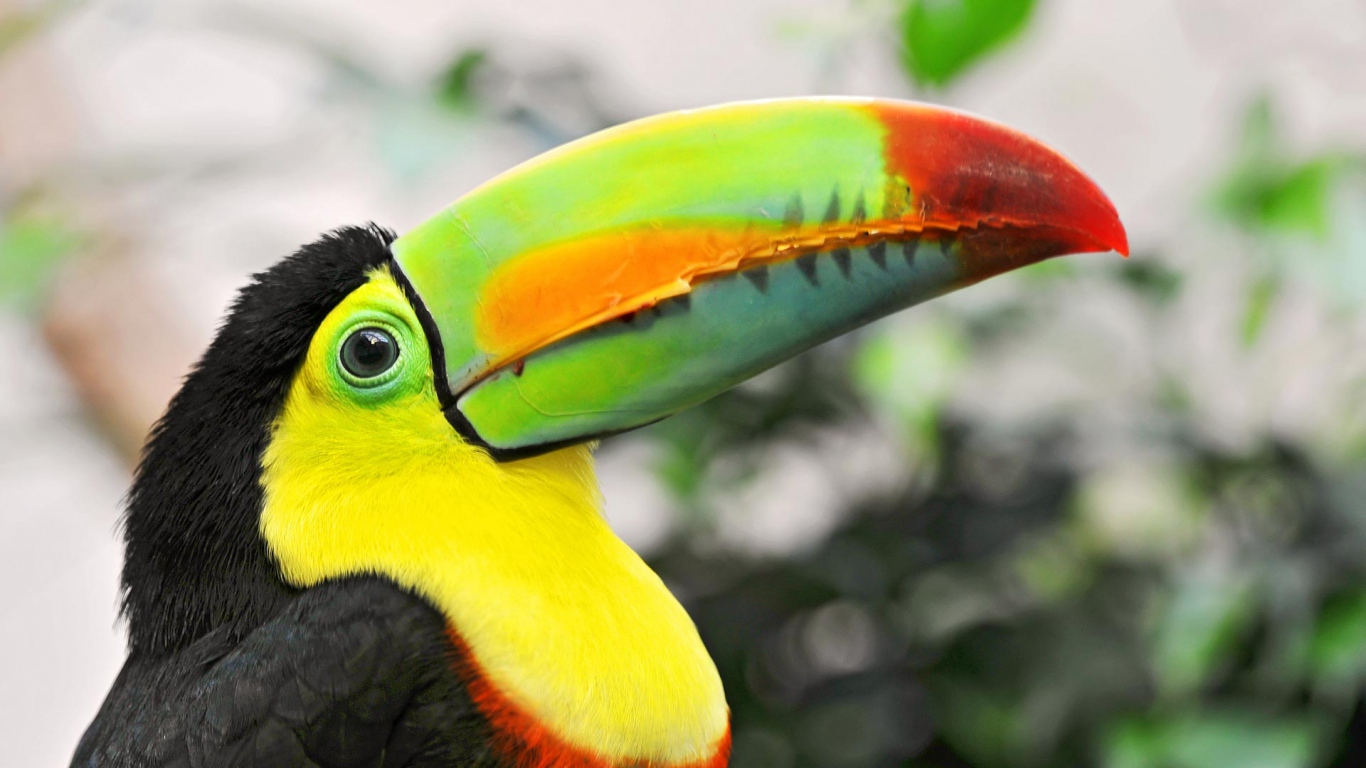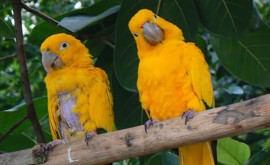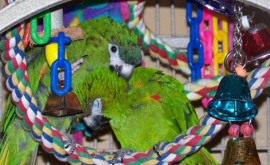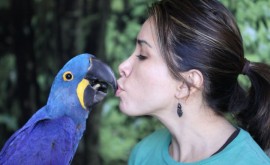Birds, especially larger breed parrots are notorious for screaming. A few weeks ago, a customer who said rather than being smart, his macaw was stupid. The pet owner went on to say that his bird screamed so much, his cage had to constantly be covered.
This owner felt the screaming in spite of having the cage covered was evidence of him being unintelligent and that in fact, the screaming was getting much worse. The macaw even had his own room, boasted his owner, so this bird was isolated in a room and that whenever he screamed, the owner was yelling for him to stop from another room, followed by covering the cage.
In nature, a parrot separated from the flock will scream. In captivity, separation from the human flock causes screaming which in turn is reprimanded. Ornithologist and researcher believe that the owner’s yelling is actually seen as some type of communication and entertainment but obviously, is getting zero positive response.
I remind the owner of the ABC strategy, which works amazingly well in correcting bad behavior and I spoke of in the article titled, “Pet Bird Aggression and Unintentional Rewards”. This includes:
- A – Antecedent or what happens prior to the unwanted behavior
- B – Target behavior
- C – Consequence
For the abovementioned case, the parrot is isolated, he screams, and the owner yells for him to shut up. This shows an escalating issue that is not being handled properly.
By analyzing patterns specific to unwanted behaviors, parrot owners have the ability to identify the reward that keeps the behavior going. Too often, bird owners do not understand what birds find rewarding. More than likely, a parrot does not like being yelled at any more than a child would. Eventually, the bird finds the yelling humorous, which prompts even more bad behavior.
Pattern Change
If the owner of the customer with this poor macaw wanted the bird to stop screaming, he needs to quit rewarding him in the form of yelling back. Instead, he should turn around and leave, completely ignoring the bird’s attention getting tricks. Simply put, to change bad behavior in a bird, it has to start with the owner changing behavior.
More than likely, the macaw mentioned was bored and lonely. A better solution would be to take the bird out of the cage to play two or three times a day. The bird should also be introduced to stimulation in the form of interesting treats and toys. Even saying “hello” whenever walking past the bird’s room would be beneficial.
When the bird is no longer rewarded for screaming and given stimulation and attention instead, the problem will greatly diminish. In another situation regarding a conure, a teenage boy would come home from school and immediately take the bird out of his cage. After being placed on the play gym, the bird was given a grape, his favorite. This action prevented screams from ever happening in the first place.
Reuniting Flock
Because birds loudly announce the reunion of a flock in nature, there can be some challenges. Often, when kids come home from school or a spouse from work, the added noise can trigger a scream fest. To prevent this, a stay-at-home parent can plan ahead by playing with the feathered pet or playing loud music.
Afterward, the bird could be given a soothing bath and given a favorite treat. This allows the bird to “blow off steam” before the ruckus within the home starts. After everyone arrives home, they are encouraged to say hi to the bird and even sing along with him. Just a few minutes of interaction can go a long way in preventing unwanted screams.
Tips Quieting a Parrot
When it comes to quieting a parrot, it is imperative for an owner to be diligent in not accidentally rewarding bad behavior. Even with this, parrots can be overly vocal at times, which can be difficult to quiet. According to top avian experts, there are five primary ways to quiet a screeching parrot. Understanding these can make pattern change easier.
Bath Time
A bird that is riled up will calm down quickly with a nice bath. For this, the bird can get a gentle spray bath while on a perch stand or placed in the bathtub without one inch of water and constant supervision. In most cases, a bath will stop a bird from screaming although during the bath excitement is common. Spray bottles should never be used as a form of discipline.
Chew Foods and Toys
Another way to stop a parrot from screaming is by offering a variety of crunchy foods and toys. Typically, a bird will get so focused on the new food or toy that the screaming stops. Avi-Cakes and Nutri-Berries are ideal choices for food because they provide nutritional value or any healthy treats that are an absolute favorite can be used at this time. As for toys, bells, plastic spoons, and dog bones stringed together work great too.
Sing-a-Long
Birds love to sing with their owners so singing or talking in an animated way helps a bird release pent up energy. However, owners need to understand that parrots are naturally noisy at certain times of the day, which is healthy and therefore should be allowed. So it’s up to you to find out your parrots “noisy time”.
Quick Service
Most parrots, especially those with good appetites, like breakfast, served first thing in the morning. To prevent screaming from starting, an owner can provide a good breakfast upon awakening. More than likely, this will cut down on noise commonly heard during the early morning hours.
Each bird, like humans, have different moods and methods that work for them so your job as parronts is to know your parrot and find out what works. This article only highlights just a few of a zillion and one ideas out there that we have successfully used as well as some of our customers.





